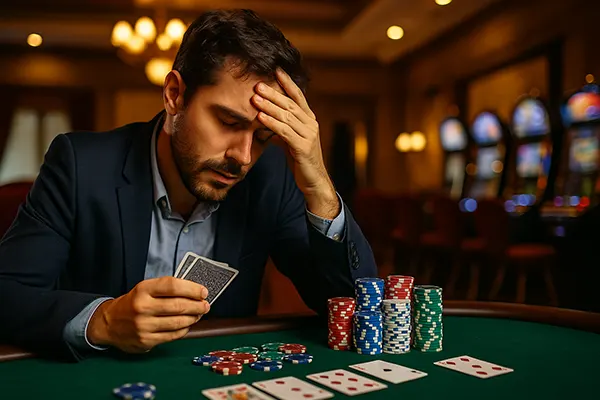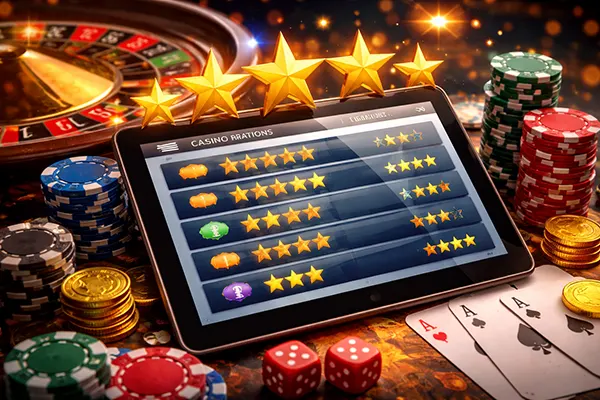
Does Psychology Influence Casino Strategies: How to Avoid Emotional Bets?
Gambling can be thrilling and exhilarating, yet it often leads to emotionally charged decisions that affect strategic thinking. Many players find themselves betting more than they initially planned or making irrational choices driven by emotional highs and lows. Understanding the impact of psychology on casino strategies can help players make more informed decisions and avoid costly mistakes.
The Role of Emotions in Gambling Decisions
One of the most significant challenges that casino players face is managing their emotions during gameplay. Whether it’s the excitement of a big win or the frustration after a loss, emotions can cloud judgment, leading to impulsive betting. This phenomenon is commonly known as “tilt” in gambling terms.
When players are on a winning streak, they might feel invincible, leading them to increase their bets without considering the potential risks. On the other hand, a series of losses can provoke a desire to chase losses, which often results in even more significant financial damage. Recognizing these patterns is the first step toward more controlled gambling.
Another psychological factor is the illusion of control. Many players believe that they can influence the outcome through personal rituals or betting patterns, but in reality, most casino games are purely based on luck. Misinterpreting random outcomes as patterns can lead to irrational strategies.
Common Psychological Traps in Casino Strategies
Understanding common psychological pitfalls can significantly enhance strategic decision-making. One such trap is the gambler’s fallacy – the belief that a losing streak must eventually lead to a win. This misconception often leads players to continue betting, believing that the odds will eventually balance out.
Confirmation bias is another critical factor where players recall wins more vividly than losses, creating a distorted perception of their success rate. This skewed perception encourages riskier bets as players feel more confident in their chances of winning.
Additionally, emotional attachment to certain games or numbers can cloud rational thinking. Players often stick to familiar strategies despite evidence that they are not effective, driven by the comfort of routine rather than logic.
How to Develop Emotional Discipline in Gambling
Building emotional discipline is essential for successful gambling. One effective approach is setting predetermined limits for both wins and losses. This strategy ensures that emotions do not dictate decisions during the heat of the moment.
Another practical method is practicing mindfulness. By being aware of one’s emotional state, players can recognize when feelings of frustration or overconfidence are beginning to influence their decisions. Taking a break or stepping back from the game can help reset emotional balance.
Establishing a consistent betting strategy, regardless of recent outcomes, also minimizes emotional interference. By adhering to a calculated plan, players can avoid the temptation to deviate based on gut feelings or temporary excitement.
Effective Techniques to Maintain Control
Setting a strict budget and adhering to it is fundamental. Players should decide on a spending limit before starting and commit to not exceeding it, regardless of the outcome. This approach reduces the risk of financial strain caused by emotional betting.
Furthermore, employing time management techniques can help avoid prolonged sessions that increase emotional vulnerability. Shorter, planned sessions allow players to stay focused and maintain strategic consistency.
Lastly, it is beneficial to track gambling activities. Maintaining a record of bets placed and outcomes can provide valuable insights, allowing players to identify emotional patterns and make more data-driven decisions in the future.

The Importance of Psychological Awareness in Casino Strategies
Incorporating psychological awareness into casino strategies can significantly reduce the negative impact of emotions. Players who recognize their psychological triggers can proactively manage their reactions and make more logical decisions.
Educating oneself about the psychological aspects of gambling not only enhances strategic thinking but also contributes to a healthier gambling experience. This proactive approach helps prevent the emotional rollercoaster that often leads to financial loss and regret.
Psychological self-awareness does not eliminate the randomness inherent in casino games, but it empowers players to approach gambling with a balanced mindset. By prioritizing emotional control, players can enjoy the experience without falling into detrimental betting habits.
Final Tips for Maintaining Emotional Balance
Staying calm and composed, even after a significant win or loss, is vital. Celebrating responsibly and accepting losses as part of the gambling process can help maintain emotional stability.
Engaging in recreational activities outside of gambling can also alleviate stress and reduce the desire to make emotional bets. Diversifying one’s interests prevents obsession with recouping losses and promotes a more balanced lifestyle.
Lastly, seeking support from responsible gambling resources can provide additional guidance and assistance in maintaining a healthy relationship with gambling. Emotional well-being should always take precedence over the pursuit of monetary gain.




